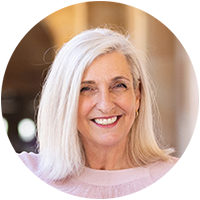Partner with us
Team up with us on research, create international networks,
tap into student expertise, or develop your skills.
Collaborate on research with impact
Together we can address a wide range of social, economic and environmental challenges – from complex global challenges to local Queensland issues.
Ways to partner
- Policy and law reform: Collaborate with us to make submissions to government departments and agencies such as the Australian Law Reform Commission, the Department of Defence, and the UN’s International Labour Organisation.
- Responses to complex social challenges: Work with us to propose legal solutions, such as protecting press freedom or mitigating youth injustice.
- Research grant partnerships: We'll share knowledge and skills on grants and development funding, such as ARC Linkage Projects.
- Commission research: We'll conduct research under a private contract, providing independent expert advice to resolve your challenges.
- Sponsorship: Enhance your brand by funding a research chair, scholarship, research facility, or event.
Download Partnering for impact brochure
Contact our Research Development Manager to discuss your options at c.buttery@law.uq.edu.au.
International networks
Visiting academics
We welcome visiting academics from across the globe to conduct research.
Apply to join the Visitors Program
Global associations
We foster strong relationships with our international counterparts through membership in the following organisations:
Law Schools Global League: Leading law schools from across the globe stimulate academic debate and cooperation.
Asian Law School Association (ALSA): Advancing excellence in legal education and scholarship, ALSA provides a platform for collaboration and mutual support while upholding core values such as academic freedom, rule of law, diversity, fairness, and justice.
Asian Law Institute (ASLI): Leading Asian law schools fostering Asian legal scholarship.
International study partnerships
We offer a wide range of study abroad and incoming exchange opportunities through our partnerships with universities in the United States, Europe, and Asia-Pacific.
Industry engagement
Discover some of our partnerships
Learn how we collaborate with global and local partners to resolve critical concerns.
Keep updated on the latest from UQ Law Research
A great way to get to know our researchers is through our news and events.
Reach out
 Have an idea or issue you'd like to explore? Please feel free to discuss your needs with individual researchers directly or email our dedicated Research Development Manager, Carmen Buttery, to arrange an online or in-person catch-up at a time that suits you to discuss the challenges you’re facing.
Have an idea or issue you'd like to explore? Please feel free to discuss your needs with individual researchers directly or email our dedicated Research Development Manager, Carmen Buttery, to arrange an online or in-person catch-up at a time that suits you to discuss the challenges you’re facing.
Carmen Buttery
Research Development Manager
UQ Law School
